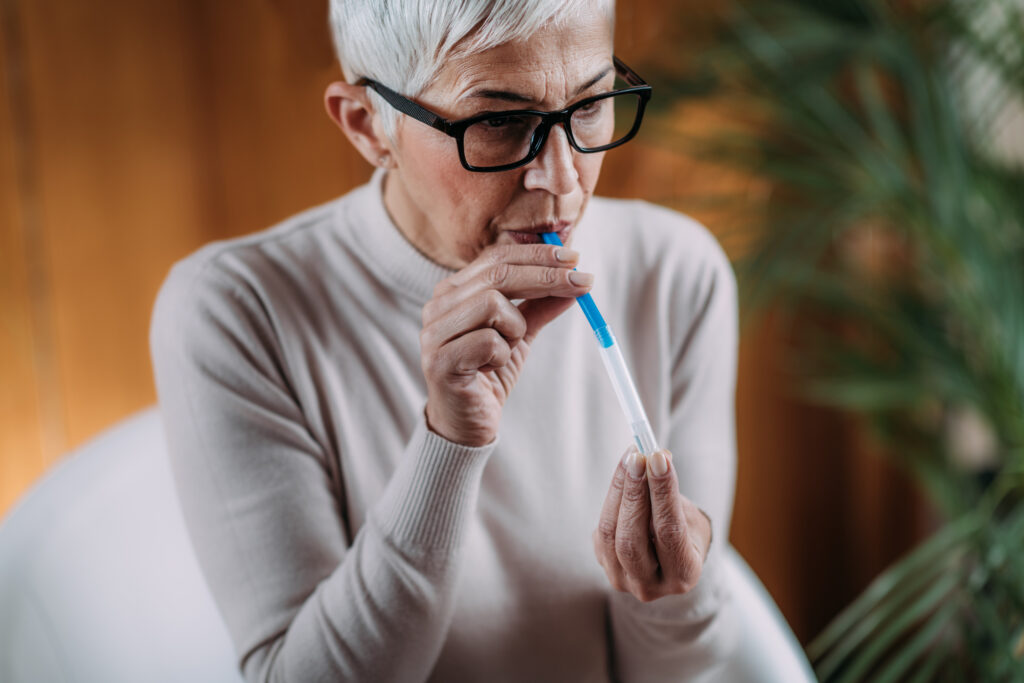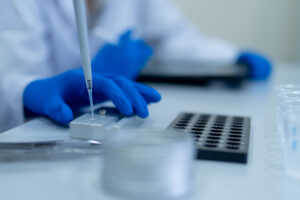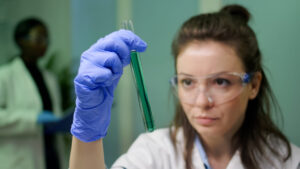At-home genetic testing can look at your DNA to let you know what your ancestry is, what your genetic tendencies may be, and whether genetic changes or mutations may be present. Changes in genes or chromosomes may be harmless, or they may indicate an increased risk, or even an existing issue, for certain health conditions or genetic disorders.
What is genetics?
Our bodies produce and are made up of cells. Chromosomes are parts of those cells. They contain DNA, which is separated into genes. Genes shape the characteristics we inherit from our biological parents and ancestors. These traits can include eye color and shape, hair color and texture, blood type, dimples, a tendency to diabetes or crooked teeth, or even a dislike for the taste of cilantro, a herb sometimes used in food.
Genetics is the study of these hereditary traits, and also the study of genes and their components themselves. Genetic testing has a variety of uses. Genetic tests can tell you about your genetic predispositions for health and your family health history. They can test for paternity and help you find family members you never knew you had. And, they can dig deep into the family trees you came from, helping you find your place in the world through ancestry and genealogy research.
Why do genetic testing at home?
At-home genetic testing is simply the availability of these varying types of genetic tests for at-home use. You no longer have to set an appointment and go into a laboratory or health facility. You don’t have to go through your insurance, if you prefer not to, for privacy reasons. In some cases, genetic testing that is done at the recommendation of your doctor may be covered by insurance, if that is what you want.
In any case, the prices have come down drastically from the first launch of this type of testing. While at-home genetic testing used to cost what could amount to an easy several thousand dollars, many types of at-home genetic testing are now much more affordable. Most are somewhere in the $100 to a few thousand dollars range (depending on the genetic tests). That puts basic and even high-level testing in reach of the general public, which also makes it more useful for everyone. The more DNA examined, sorted, and listed in a database, the more accurate and far-reaching results can be, especially about ancestry testing.
It is usually easier and more convenient to do tests at home rather than in a laboratory. These days, with more and more people doing nearly everything at home, including educating themselves or their children, or even working from home, there is just no reason to travel to do something that can be taken care of online or by mail.
For a comprehensive understanding of direct-to-consumer genetic testing, including its benefits and considerations, refer to our article on What You Need to Know About Direct-to-Consumer Genetic Testing.
How is at-home genetic testing done?
In most cases, your test kit will be ordered online and delivered to your home. Not everyone is aware of this, but you can now also buy genetic testing kits in certain stores. However, you will want to determine ahead of time the type of kit you want to purchase, and which stores may carry it, as tests in stores are rather limited in their variety.
When you have your kit, you’ll take a sample of your DNA. This is done with saliva collected in a test tube, a cheek swab (usually done with a stick with a sponge, absorbent pad, or cotton bud on one end), or a blood draw. You may need to stop at a local lab if you will be collecting a blood sample.
Once you have your sample set, you’ll send it to the vendor, following their instructions. Their lab will take care of the actual tests. You will then receive the results online, via phone, or by mail, depending on the company and your choice.
A genetic counselor or health care professional may be provided by some at-home DNA testing companies, to be available for your questions and concerns. They can also explain your results and what they mean for you, your health, and your family.
Is at-home genetic testing what you or your family need?
Whether it is to determine paternity, or ancestry, or to identify or confirm a serious health concern, you know best what your family needs. For markers that may flag a possible genetic syndrome, or a severe disease, whether you or your healthcare professional have noticed it, do look into your recommended options and see what rare disease genetic testing is available.
It may be a good idea to speak with a genetic counselor both before and after you receive any test results. Check if one is offered as an option together with your at-home genetic health testing kit.
Genetic counseling is advisable as early as a possible concern is detected, to plan for your own, your child’s, or your loved one’s highest level of developmental care, potential therapy, and long-term well-being.



